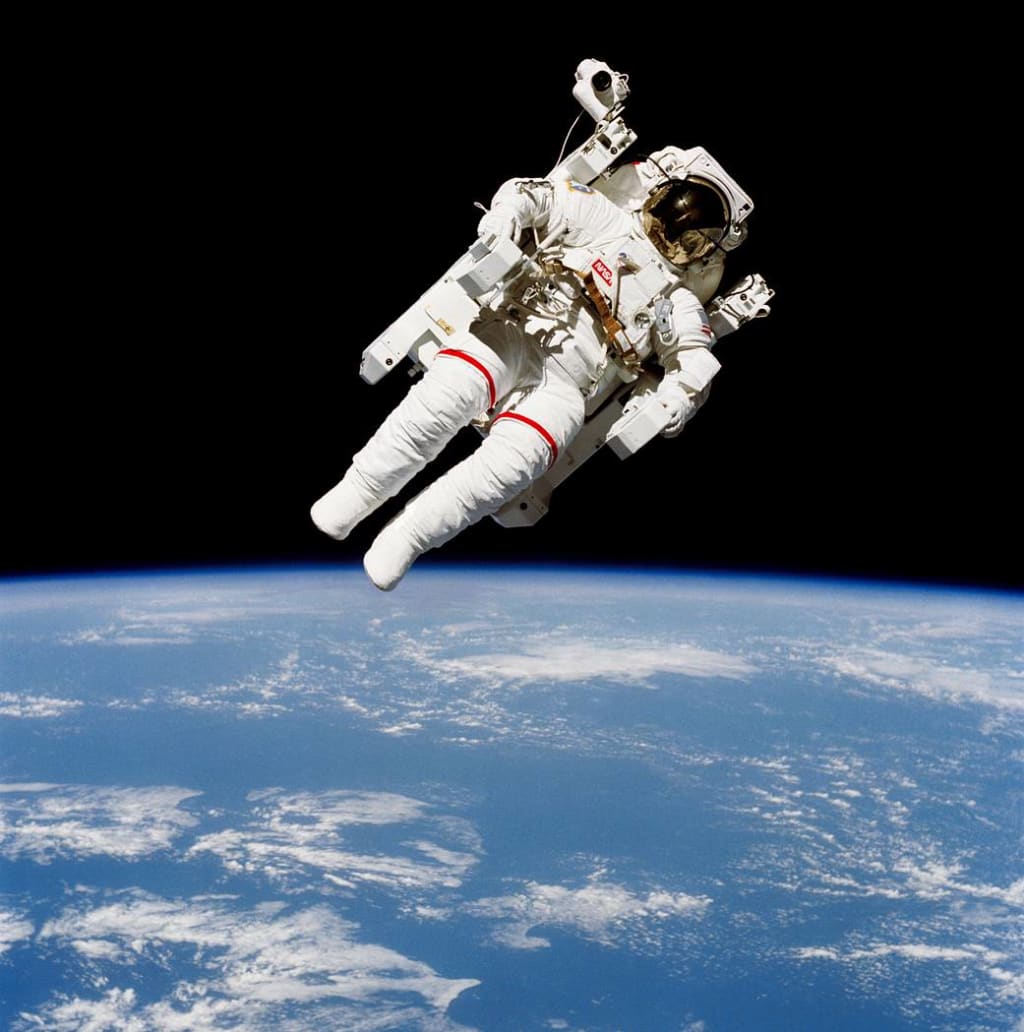What happens if a Astronaut floats off during a spacewalk
👨🚀🌠🚀

Watching certain scenes from the movie "Gravity" is terrifying, let alone imagining being stranded in the cold, endless void of space without knowing if you could return. Imagine you're actually up there, excited for your first spacewalk—a risky endeavor that astronauts on the International Space Station (ISS) undertake frequently. Accidents in space are far scarier than those in regular 9-to-5 jobs on Earth, which is why astronauts undergo rigorous training and use specialized equipment to ensure their safety.
During a spacewalk, astronauts are always tethered to the spacecraft to prevent drifting off uncontrollably. Although it may seem like the ISS halts its operations when astronauts venture outside, in reality, it continues orbiting; halting would cause it to plummet to Earth. The first-ever spacewalk in 1965 wasn't as routine as modern ones; it lasted just 12 minutes due to technical difficulties. One astronaut's suit inflated unexpectedly, making movement difficult and overheating a risk. Despite these challenges, they managed to return safely, although their spacecraft later spun dangerously and landed in a forest, surrounded by wildlife during a snowstorm—a harrowing experience demonstrating the risks involved.
Advancements since then have significantly improved safety. Hundreds of successful spacewalks have occurred without major incidents, allowing astronauts to appreciate the breathtaking views while tethered securely. However, the unexpected failure of safety measures can still occur. Imagine floating away from the ISS, tether malfunctioning, with nothing to grasp onto—your body weightless, spinning aimlessly. Scott Kelly described this disorienting sensation akin to a scuba diver in murky waters, unable to distinguish up from down—a stark contrast to the playful antics possible in zero gravity inside the spacecraft.
As you near Earth's atmosphere, the seemingly comforting return home becomes perilous; a miscalculation in speed or angle during reentry could lead to catastrophic consequences. NASA prepares astronauts for such contingencies, including the use of emergency jetpacks known as SAFER, providing independent movement and stability in space, a technology refined over decades to ensure reliability.
Despite rigorous training and technological advancements, space remains inherently unpredictable. In 1973, astronauts on Skylab faced a precarious situation when unexpected movement nearly caused them to drift off into space, highlighting the constant vigilance required in extravehicular activities. Safety tethers, though effective, have limitations, as demonstrated before the era of modern jetpacks like SAFER.
Astronaut training today involves simulations in giant water pools mimicking weightlessness, preparing them for the challenges of spacewalks. They undergo psychological evaluations to manage stress and maintain focus during complex operations, such as repairing the Hubble Telescope for over eight hours in cumbersome gloves, underscoring the mental and physical demands of their missions.
Ultimately, space remains a frontier where human control is limited, despite meticulous planning and support from Earth-based mission control. Astronauts must be ready for any eventuality, drawing on their training and resilience to navigate the unpredictable environment beyond Earth's atmosphere. As technology advances and understanding of space grows, so too does our ability to mitigate risks and ensure the safety of those who venture into the vast expanse beyond our planet.
About the Creator
Enjoyed the story? Support the Creator.
Subscribe for free to receive all their stories in your feed. You could also pledge your support or give them a one-off tip, letting them know you appreciate their work.





Comments
Test is not accepting comments at the moment
Want to show your support? Send them a one-off tip.